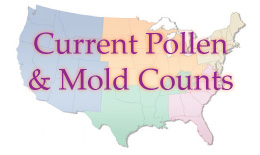Food Allergies
Those suffering from food allergies have immune systems that overreact to proteins found in certain foods. Unlike intolerance to foods, food allergies can be life threatening. The foods responsible for most allergic reactions include: cow’s milk, eggs, fish, nuts, shellfish, soy and wheat.
Food Allergy Symptoms
Ingestion of the offending food may trigger the sudden release of chemicals, including histamine, resulting in symptoms of an allergic reaction. The symptoms may be mild, resulting in rashes, hives, itching, swelling, etc. or may be severe with trouble breathing, wheezing, tingling in the extremities, loss of consciousness, etc. If you experience any of these symptoms, contact 911 immediately.
Food Allergy Testing
There’s no standard test used to confirm or rule out a food allergy. Dr. Fleekop may use any of the following to help diagnose your food allergies:
Description of your symptoms. A history of your symptoms — Which foods? Quantities?
Physical examination. An exam can identify or exclude other medical problems.
Food diary. Chronicle your eating habits, symptoms and medications to pinpoint the problem.
Skin test. A skin prick test can determine your reaction to a particular food.
Elimination diet. Eliminate suspect foods for a duration, and then add the food items back into your diet one at a time.
Blood test. To measure your immune system’s response to particular foods by checking the amount of allergy-type antibodies in your bloodstream, known as immunoglobulin E (IgE) antibodies.
Oral food challenge. During this test, done in our office, you’ll be given small, but increasing amounts of the suspect food. If you don’t have a reaction during this test, you may be able to include this food in your diet again.
Treatments for Food Allergies
The only way to avoid an allergic reaction is to avoid the foods that cause signs and symptoms. If you do experience a minor allergic reaction, you may take an over-the-counter or prescription antihistamine to reduce symptoms. For a severe allergic reaction, an emergency injection of epinephrine and trip to the emergency room may be necessary. Many people who suffer from food allergies carry an EpiPen with them at all times.

